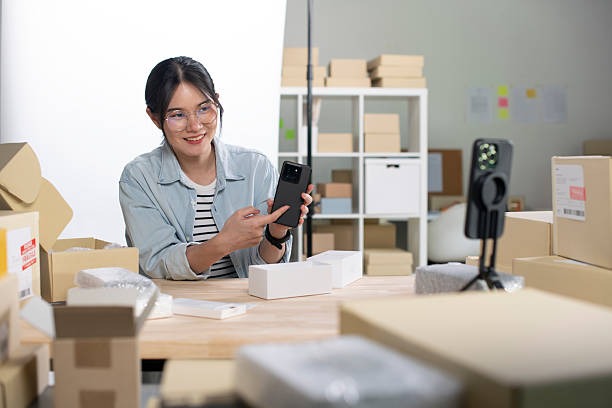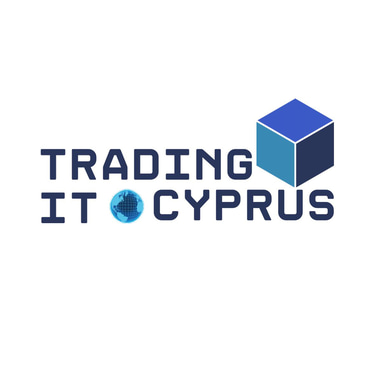How to Import Consumer Electronics to Cyprus: Cameras, Laptops, Keyboards & More
IT TRADING
11/13/20255 min read


How to Import Consumer Electronics to Cyprus
There is boom in the technology market in Cyprus. Electronics are always in the demand with its flourishing tourism industry, increased population and digitalization of schools and offices. Most of these products particularly the cameras, laptops, and keyboards are imported in Asia, Europe, and North America. Learning how to import consumer electronics to Cyprus helps both new and experienced traders expand their reach. By taking the right measures, importers would be guaranteed of an easy customs clearance, low taxation, and higher profits to remain within the standards of EU.
Learning about Cyprus Electronics Market.
Before diving into how to import consumer electronics to Cyprus, it’s important to understand what sells best. The local market is varied; it is interested in laptops as the necessary equipment of students and remote workers, cameras as the equipment of professionals and tourist, and additional devices such as keyboards, mice, and speakers. Cyprus consumers are more concerned with quality, durability, and innovativeness. This renders especially popular brands of Japan, Germany or South Korea. Understanding your audience will also guide you to the correct combination of products in that way that you can sell fast and experience a stable rise.
Task 1: About Trustworthy Suppliers.
The first step in how to import consumer electronics to Cyprus is finding trusted suppliers. Majority of the electronics are made in China, Japan and other Asian Nations, though there are many distributors in the EU who sell quality products. Select suppliers who have good reputations, have proven trade licenses, and reliability. Demand sample prior to making bulk orders. In the European Union, such certifications as CE marking and RoHS compliance are required and should be requested always.
Step 2: Analysis of Import Regulations and Duties.
The import regulations of Cyprus are based on EU laws. Understanding them is key to mastering how to import consumer electronics to Cyprus. When electronics are shipped within the EU the duty of imports on most electronics including cameras and computers is zero or low. Non-EU imports can however be subjected to product- and value-based duties. Whichever the case, importation is subject to 19% VAT which is computed on the overall cost of the product together with shipping and insurance. VAT can be used later by businesses registered to enjoy VAT but individuals will have to pay it in full. Proper paper work and invoices save time in repacking goods by the customs and also facilitate transparency.
Step 3: ready the Documentation needed.
Effective imports depend on accurate reports. When learning how to import consumer electronics to Cyprus, prepare these essential papers:
• Commercial Invoice: It contains details of buyer and seller, quantity and price.
• Packing List: Lists the contents, mass and the quantity of boxes.
• Bill of Lading or Air Waybill: This is a document that shows that the shipment was done.
• Import Declaration: Delivered to the Cyprus Customs to be clearance.
• CE Certificates: Assures the compliance of the EU.
• Warranty Information: If is needed in the case of consumer sale.
Proper paperwork saves time and provides hassle-free processing of customs.
Step 4: Selecting an Appropriate mode of shipping.
The air freight is quick but will cost more, which suits the small and valuable goods such as laptops and cameras. Sea freight is cheaper in case of large quality but slower. Electronics are very delicate hence need to be well packed. Protect against damage by using padded boxes, anti-static materials and also waterproof wrapping. Shipments should always be insured against any transit risks. Customers are served by reliable logistic partners and tracking allow better transparency and enhance customer trust.
Step 5: Clearance and Inspection of customs.
This is why understanding how to import consumer electronics to Cyprus correctly helps avoid issues. Customs may also perform random physical examinations to ensure values and labeling of CE are adhered to. It will be easier when one has a professional customs broker. They make sure that all the import duties and VAT are correctly calculated and paid enabling your products to be released promptly.
Step 6: Storage, Handling and Distribution.
Clearance is essential followed by proper storage. Electronics are not resistant to heat, moisture, and dust. Make use of dry temperature control, product storage. To distributors, the smaller cities such as Nicosia, Limassol, or Larnaca make great sense to store a stock of supply ready to deliver to them within very shorter distances. Arrange products on a category basis e.g. cameras, laptops, key boards etc. to ease management. Understanding logistics is a key part of how to import consumer electronics to Cyprus, ensuring timely restocking and customer satisfaction.
Pros to the importation of Consumer Electronics in Cyprus.
1. Growing Market Demand: The consumer electronics demand is endless with the digitization increasing at a rapid pace.
2. Tax Benefits to the Businesses: Registered importers are able to reclaim VAT which enhances their cash flow.
3. Large Product Availability: Importers have the privilege of accessing the new technology of world manufacturers.
4. Good Trade Environment: Cyprus has the benefit of being an EU member and hence good stability in its trade and stable regulations.
5. Large Potential Profit: Quality electronics usually have good selling margins upon importing and reselling.
By understanding these benefits, businesses can confidently apply the principles of how to import consumer electronics to Cyprus for sustainable success.
Some of the difficulties that are common with importing electronics.
Despite increasing market there are challenges. The major threats are counterfeits, delayed shipping, and fluctuating prices that can happen because of currency fluctuations. Clearances can also be hampered by the customs inspections in case the documentation is less than perfect. The other issue is technical compliance, all products should comply with EU safety and environmental standards. Ignorance of these problems may cost one money. Hence, importers must never fail to confirm the authenticity, to thoroughly check the paperwork, and cooperate with certified suppliers. The Risks & Pitfalls of Importing Consumer Electronics to Cyprus can be minimized through some time with experience.


The Beece of Success in Imports.
• Cooperate with the trusted suppliers and demand samples of products.
• This is because, always take good CE-certified electronics.
• Comparison in freight choices of cost-effectiveness.
• Maintain clear financial and customary accounts.
• Provide after sales services and warranty.
• Keep up to date with trade in the EU.
• Emphasize on customer satisfaction and lasting relationships.
The observation of such best practices will make the operations in the competitive electronic trade smooth and compliant.
Conclusion: Developing a Future in the Cyprus Tech Market.
Understanding how to import consumer electronics to Cyprus opens doors to a rewarding and growing market. The opportunity is unlimited in forms of cameras and laptops to their accessories such as headsets and keyboards. Right paper work, planning, and good suppliers would enable importers to develop sustainable business. The electronic distribution in Cyprus can be a long run success with high innovation because it has a stable trade environment and easy access to European markets.
FAQs
Is there any special permission required to import electronics to Cyprus?
The majority of consumer electronics only demand the standard importation documents and Certificate of European Conformity. Nonetheless, radio frequencies might require further Radio Frequency through wireless devices.
Contact
EVERNEED AI LTD
Limassol Office
Victory House, Arch. Makarios III Avenue 205, Limassol, 3030
Nicosia Office
Digenis Ave 81-83 Grivas 1st, 5th Floors, Nicosia, 1090
Hong Kong Office
SUITE C, LEVEL 7
WORLD TRUST TOWER
50 STANLEY STREET
CENTRAL HONG KONG
Connect
info@tradingitcyprus.com
+357 96166570
© 2026. Trading IT Cyprus All rights reserved.
Powered by Skyrocket Marketers Agency
